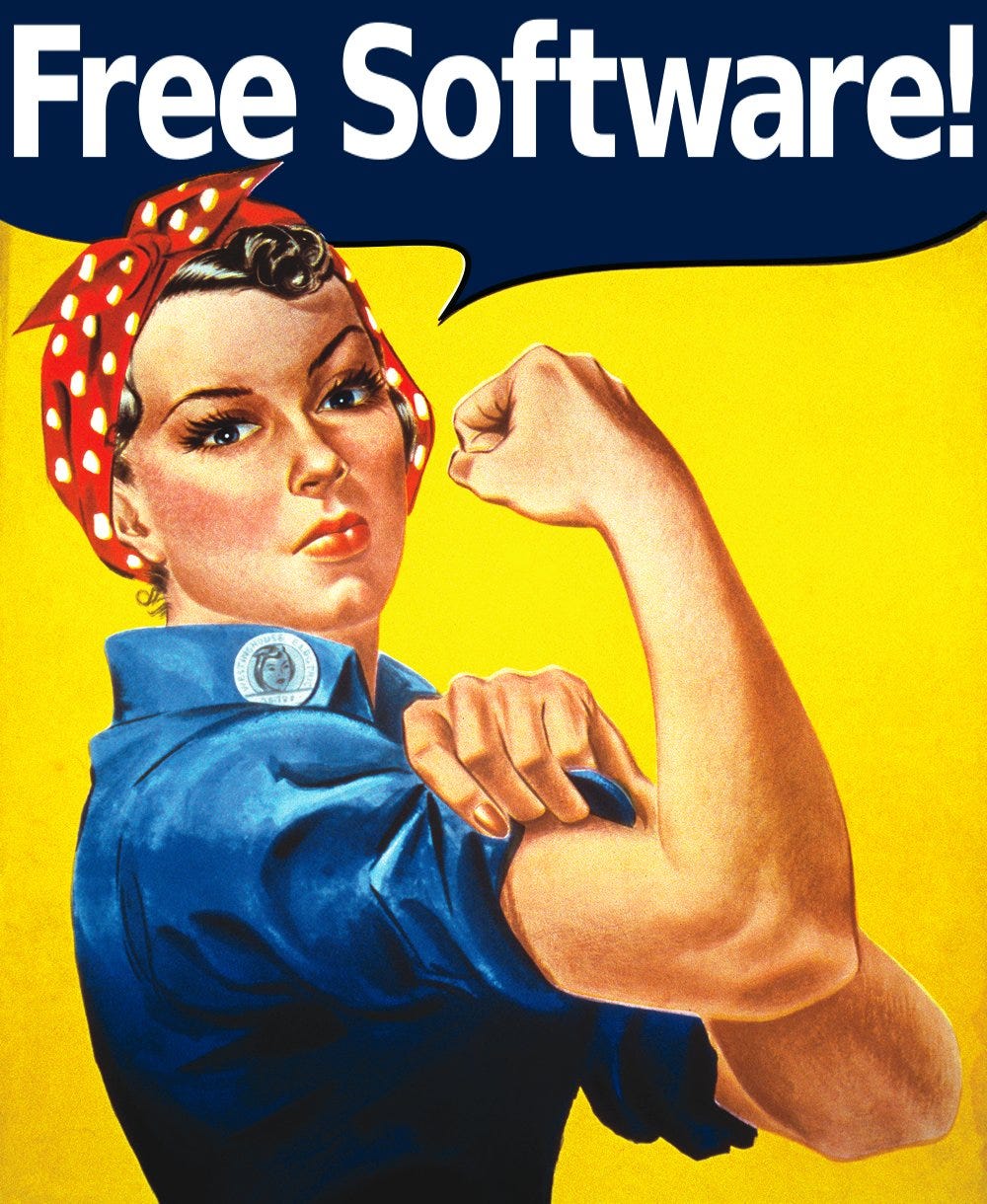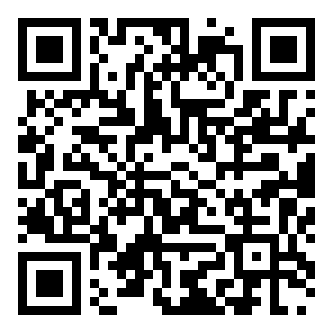Blogs & Articles: If It’s Not FOSS, It’s Not Bitcoin 🔗 22 weeks ago

- Category: Blogs & Articles | Breez Technology - Medium
- Author(s): Roy Sheinfeld
- Published: 27th November 2023 12:58
Imagine you go to a restaurant with great food and reasonable prices. You then learn from a friend who used to work there that yes, the ingredients are all organic and locally sourced, but the kitchen is full of roaches, and the employee washroom doesn’t have a sink, let alone soap.
Does that information color your experience? Are you going back? Were the premium ingredients wasted?
My point: a stack is only as clean as its dirtiest layer.
Following the restaurant analogy, the solution is also clear, often literally: open the kitchen to view. Let the guests see all the equipment, all the staff, and all the ingredients. Put the sink outside the washroom, where everyone can see. While this doesn’t guarantee hygiene, it lets everyone involved make an informed, autonomous decision. Guests no longer have to trust the staff or health inspectors; they and their decisions become autonomous.

The same applies to bitcoin companies, except our ingredients consist of bitcoin, and our kitchen is our code. You can check the ingredients here. It’s 100% pure, grade A, free-range bitcoin. I’ve even grown some of it myself. And here is our kitchen. If you see any flaws, dirty corners, or lurking pests, let us know. We’ll either fix it ourselves, or you can submit a PR.
Like all genuine bitcoin companies, we neither expect nor want your trust, which is why all our code is free and open-source software (FOSS) and always will be. At the risk of offending some nice, well-meaning people, I’d even go so far as to say that if your code isn’t FOSS, you’ve abandoned bitcoin. You’re doing your users and yourself a disservice. Let me explain why.
Trust Is Fine, But Not for Money
The root problem with conventional currency is the trust required to make it work. That’s not just my opinion, that’s a quote from Satoshi Nakamoto. Bitcoin was invented to overcome this fundamental problem.
Trust is often a good thing. Kids should (be able to) trust their parents. A marriage without trust will be short and nasty. Being able to trust friends is a major reason for having them. But those are all personal relationships. Money is impersonal. Everyone is plugged into the monetary system, but not everyone is trustworthy. And even some trustworthy people might just be dumb or unlucky, and I don’t want to be on the hook for their missteps.

When money is based on trust, my trust gets distributed indiscriminately throughout the monetary system. This applies to fiat and crypto equally. When money is based on transparency, freedom, and autonomy, I get to choose whom I trust and how much.
And that’s the whole point: freedom to choose, autonomy. Bitcoin was invented to maximize these and to free us from systems that require us to trust indiscriminately.
Bitcoin Must Be Open *and* Free
Trust-based money is antithetical to freedom, bitcoin is software money, so trust-based software is antithetical to freedom. How’s that for succinct?
FOSS is one extremely effective way to remove trust from software. Notice that the acronym contains two adjectives: free and open. Many misunderstand the first and overrate the second.
Thanks to the “don’t trust, verify”-mantra, many think verifiability is enough to obviate trust. Satoshi said:
“Being open source means anyone can independently review the code. If it was closed source, nobody could verify the security. I think it’s essential for a program of this nature to be open source.”
Don’t get me wrong. Verifiable/source-available software is much better than closed-source, proprietary software because it is transparent. But verifiability is not enough. With software that is verifiable but not free, you’re at the mercy of the whoever licenses it. And to the extent that this verifiable but unfree software defines how your money is stored or what you can do with it, you’re back in the trust trap.
There are also systemic consequences to unfree software. Imagine Bitcoin was open, but unfree. Everybody could verify the ledger and the software that runs the network, but who’s pulling the BIPs? Who decides what changes are good and proper? Good for whom? And proper to what purpose?
As soon as the right to alter — not just verify — the code becomes selective, it becomes a privilege of the few. And how would these few be selected? By vote? That’s basically fiat. By reputation? That’s a centralized private currency, like air miles. By stake?? We all know what that’s just like, and if you’re into it, I know a lot of suspiciously attractive people who can guarantee you exponential yield by next week.
I suspect the problem is that a lot of people conflate bitcoin (the currency) with Bitcoin (the code and network running it). In terms of bitcoin, secrecy and property are core values. My keys and my coins are mine. In terms of Bitcoin, secrecy and proprietary code are toxic. They corrode values like decentralization, robustness, censorship-resistance, publicness, and indelibility, which Bitcoin (the network) needs for the sake of bitcoin (the currency).
To return to the restaurant analogy, even an open kitchen is not “free.” The patrons can’t really influence the preparation or customize the dishes to their own tastes. The open and free restaurant would be more like a Korean barbecue, where the restaurant provides the ingredients and the equipment, and you prepare the food exactly as you please. Vegan? Gluten free? Extra bacon? Rare, medium, or well done? You have the ingredients at your disposal, and you include, omit, and combine them however you want.
The best-case scenario is for the code from the original implementation all the way down to the app running on the end-user’s phone to be free and open source. For all you founders, CTOs, and developers out there, remember that either your code is FOSS, or you’re asking for your users’ trust. Either your code is free, or you’re running a bank, not a bitcoin company.
 Software is born free, yet everywhere it is in chains. (Image: I G)
Software is born free, yet everywhere it is in chains. (Image: I G)
Practical Benefits of FOSS
Everybody loves pontificating about values like freedom and autonomy, but founders, CTOs, and developers also have to make sure that their decisions and business practices generate and preserve value. So let me tell you why you’re doing yourself and your investors a favor by committing to FOSS.
Censorship resistance
First, whenever someone controls the code, it’s important to ask who, how, and why. India launched a Unified Payment Interface (UPI) in 2016 to encourage digital payments in an effort to curtail tax evasion and corruption. Last year, 52% of digital transactions in India went through the UPI. While this sounds like a success, even conventional payment processors — banks and credit card companies — dislike it because they can no longer turn a profit.
And governments aren’t the only censors. Ask Facebook. Ask OnlyFans.
FOSS prevents censorship both by making changes transparent and by giving everyone the means to forgo unwanted changes.
Interoperability
Many big companies use software from a range of proprietary providers — Microsoft, Salesforce, SAP, Adobe, etc. What if they want to integrate different elements into their stack? Will that violate their EULA/SLA? Does it introduce new vulnerabilities? Is it even technically possible?
FOSS gives businesses autonomy over their own stack. Interoperability becomes merely a technical issue. Legal considerations remain, but they’re simple. It’s a matter of RTFM, and the manual is only as long as a few blog posts (i.e. the GPL is about 5500 words long vs. ~72,000 words in an Office 365 EULA). FOSS licenses basically amount to a golden rule of coding: let others tinker with your code as you tinker with theirs.
Profitability
FOSS proponents like to remind everyone to “Think ‘free’ as in free speech, not free beer.” Fine. Libre ≠ gratis. But much, if not most, of FOSS is both libre and gratis — free like speech and beer. We spend >$660 billion on software per year. In the USA, half of corporate software licenses are for applications that employees don’t even use.
The easiest way to increase profitability is to stop throwing money away. Slashing licensing costs with FOSS is a good place to start. Smart clients and users will choose sustainable, economical software solutions. Your service is also protected from providers’ and clients’ budgetary whims.
If It’s Not FOSS, It’s Not Bitcoin
The bigger and more mainstream bitcoin gets, the greater the potential rewards. Many seem to think that they can secure a bigger piece of the pie by jealously guarding their code. But the logic here is flawed. Restricting access to code and what others can do with it makes the network more vulnerable and retards innovation. You may secure a piece of the pie, but it’s not going to be a very good pie.
The more enlightened approach is to think of your own business as part of a larger network. The health of each business depends on the health of the network and vice versa. Success comes from making the pie as big and delicious as possible. A business growing at 20%/year before its market collapses in 10 years will do pretty well. A business growing at 15%/year will reach the same level after about 13 years, but if it’s built on a resilient stack, it can keep growing indefinitely.
Whether for economic or moral reasons, the right amount of trust is always less, and the right amount of openness and freedom is always more.
If It’s Not FOSS, It’s Not Bitcoin was originally published in Breez Technology on Medium, where people are continuing the conversation by highlighting and responding to this story.






